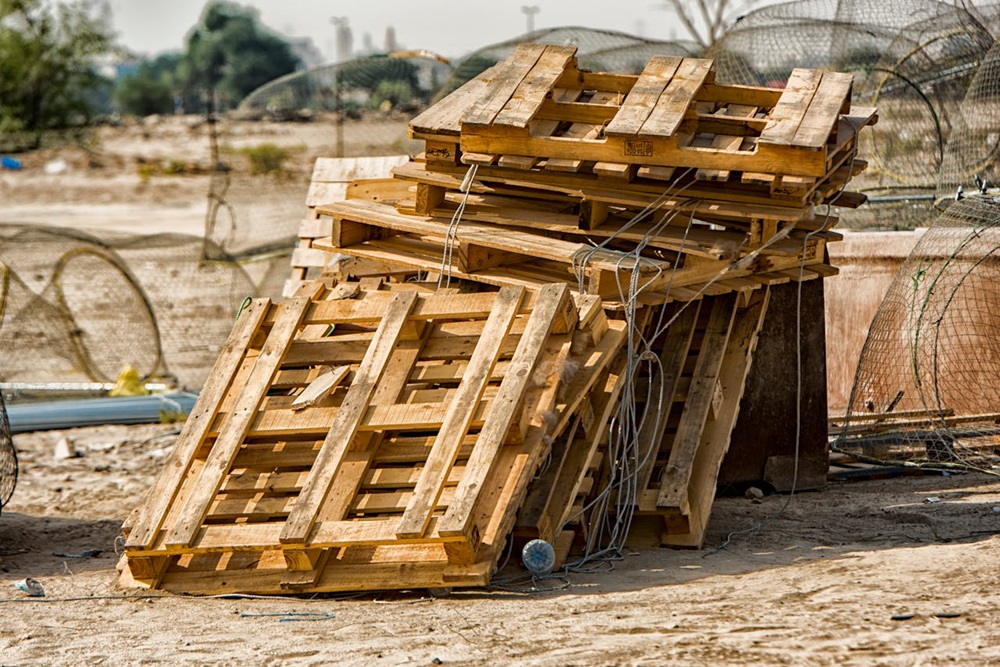
Custom Pallets
Have you ever wondered why some businesses thrive on efficient supply chains while others struggle with unnecessary delays and expenses? Are you looking for a way to streamline your logistics without compromising on quality? Perhaps you’ve heard of custom pallets but aren’t entirely sure if they’re the right choice for your operation. If any of these questions ring a bell, then you’re exactly where you need to be.
In this post, we’ll explore everything you need to know about purchasing custom pallets. We’ll cover the basics, such as what makes these pallets different from standard options, plus more advanced considerations like compliance with industry regulations and cost evaluations in Australia. By the end, you’ll have a clear understanding of whether custom pallets are a smart investment for your supply chain.
What Exactly Are Custom Pallets?
Custom pallets are pallets that are made to your specific requirements rather than being pre-built to standard dimensions. Think of them as specially tailored solutions that align perfectly with your products, industry regulations, and shipping needs. Instead of trying to fit your operations around a standard pallet size, custom pallets allow you to dictate the lengths, widths, and load-bearing capacities that matter to you. This tailored approach can be crucial for items with unusual dimensions, products that require more robust support, or even those that need special treatment to meet Australian compliance rules.
Why Choose Custom Pallets Over Standard Options?
Opting for a standard pallet can sometimes feel more convenient, but it might not always address the unique demands of your business. Standard sizes can lead to unused space, awkward stacking, and potential product damage. Custom pallets, by contrast, aim to optimise every square inch, cutting down on wasted materials and shipping costs. This not only helps your business save money but can also reduce the risk of goods shifting or breaking during transport.
While off-the-shelf pallets might still work for some, the real question is whether you want your supply chain to settle for less-than-ideal solutions. By investing in pallets designed specifically for your needs, you can add a layer of security to your logistical operations. Not to mention, adopting custom pallets can offer a competitive advantage if you handle delicate assets or items that demand specialised handling.
Benefits of Purchasing Custom Pallets
How Custom Pallets Can Enhance Supply Chain Efficiency
Custom pallets can radically improve your supply chain’s productivity. By aligning your product dimensions with pallet dimensions, you’ll minimise wasted space during storage and shipping. This can lower freight costs, especially if you ship to different Australian regions where even minor size discrepancies can add to the final bill. Moreover, custom pallets help reduce the likelihood of product damage, which protects your reputation for reliability.
Are Custom Pallets Worth the Investment?
Cost is always a concern for businesses, especially smaller operations. Still, custom pallets typically pay for themselves over time. By ensuring each pallet is designed to distribute weight properly, you decrease potential losses from damaged goods. You may also unlock future savings by reusing tailored pallets repeatedly, lowering long-term packaging expenses. When you think about the money saved on shipping, product replacements, and storage, it’s easy to see how these pallets can be a practical investment.
Key Factors to Consider Before Buying
Optimal Materials: Wood, Plastic, or Metal?
When you’re deciding on materials, consider your industry, budget, and sustainability goals. Wooden pallets are popular for their durability and cost-effectiveness. Plastic pallets, while more expensive, can be easier to clean and often outlast their wooden counterparts. Metal pallets are usually reserved for niche applications where extreme strength or specific sanitary conditions are required. Whichever route you choose, aim for materials that fit your operational demands without overextending your budget.
Correct Dimensions and Load Capacity
Picking the right dimensions is vital to avoiding instability and making sure your cargo doesn’t overhang. Think about whether your goods need extra support or if they’ll face tough conditions like high humidity or heavy stacking. Matching dimensions to your transport vehicles or storage spaces is equally important. Spending time calculating load capacity can also save you from costly slip-ups, such as pallets collapsing under excessive weight.
Navigating the Australian Custom Pallet Industry
Where to Buy Custom Pallets Locally
Australia boasts a range of pallet specialists catering to various needs. You’ll find dedicated manufacturers in industrial hubs like Sydney, Melbourne, and Brisbane, often near major transport routes for convenience. Local hardware chains and building supply stores may provide custom options too, though these can be more limited. Investigate local pelleting co-ops or check out smaller, family-operated workshops for unique craftsmanship this is particularly helpful if you value personalised service and direct communication.
How Much Do Custom Pallets Cost in Australia?
Prices vary based on materials, dimensions, and order quantities. Basic wooden pallets might start at around $20–$30 each if you’re ordering in bulk, whereas plastic or metal options can go significantly higher. The good news is that custom orders often qualify for volume discounts. Moreover, many manufacturers offer flexible payment terms and tailored quotes, so it pays to shop around and compare.
Top Custom Pallet Suppliers and Manufacturers
If you’re searching for established names, keep an eye on nationwide companies with a proven track record in manufacturing and delivery. Look for those with a strong focus on compliance, particularly if you handle exports. Smaller operations can also impress if they pride themselves on exceptional craftsmanship or quick turnaround times. Ultimately, choose a provider with a reputation for reliability, transparent pricing, and the capacity to meet your specific timeline.
Shipping Constraints and Regional Variations
In expansive regions such as Western Australia or the Northern Territory, transport costs can escalate due to long distances between regional hubs. These challenges make it all the more important to confirm that your pallet supplier can handle the logistics of delivering large orders on time. Meanwhile, shipping regulations for certain states can also influence your choice of materials. Make sure to ask your chosen supplier about any local or regional rules that might apply.
Post-Purchase: Storage, Maintenance, and Disposal
Best Practices for Extending Pallet Lifespan
To make your pallets last, store them in dry, well-ventilated areas. Overstacking can compromise structural integrity, so stick to recommended stacking heights. Regularly check for loose boards or nails, as simple repairs can add months or even years to a pallet’s life. If you have wooden pallets, try to control humidity levels to prevent rotting or mould.
Eco-Friendly Disposal Methods
When a pallet does reach the end of its life, consider responsible disposal. Wooden pallets can often be recycled or repurposed into furniture, garden planters, or artwork. Plastic pallets can sometimes be shredded and recycled, depending on local recycling facilities. By exploring these routes, you help reduce landfill waste and contribute to a greener environment.
Are There Alternatives to Wooden Pallets?
Alternative materials like plastic, steel, or even corrugated cardboard can be suitable in specific scenarios. Plastic pallets, for instance, are a solid choice if hygiene is your top priority, such as in pharmaceutical or food-processing environments. Steel might be necessary for heavy-duty industrial settings. While these options can be pricier, they often come with advantages like easier cleaning or improved longevity, making them worth considering for certain applications.
Future Trends in Pallet Technology
Innovations in Sustainable Materials
Sustainability is becoming a priority for many Aussie businesses. We’re starting to see pallets made from alternative substances such as recycled plastics or even bamboo composites. These greener choices can help brands meet environmental targets, while still offering durability comparable to traditional wood. Over time, adopting these eco-friendly solutions may well become standard practice.
Smart Pallets and RFID Tracking
Another emerging opportunity in the Australian market is the rise of smart pallets. Equipped with RFID chips or GPS tracking, these pallets provide real-time data on location, temperature, and even shock impacts. Such detailed insights can be invaluable for high-value or sensitive goods. Imagine having instant alerts when a pallet is mishandled or delayed en route. That level of oversight can transform logistics management.
Emerging Opportunities in the Australian Market
Looking ahead, custom pallets are likely to become even more specialized. With advances in manufacturing and data analytics, pallets can be tailored to enhance supply chain visibility and reduce manual handling. Companies big and small may lean into collaboration with tech-focused suppliers, leading to more sophisticated pallet designs. The potential for cost savings and improved safety protocols is huge, and those who jump on board early can gain a decisive edge in their sector.
Conclusion
Purchasing custom pallets is more than just picking the right size and material. It’s about creating an environment where your goods are handled, stored, and shipped in the most efficient, safe, and cost-effective way possible. By investing in materials that match your needs and paying attention to details like compliance and load capacity, you can keep your business on track and protect your products from unnecessary risk.





